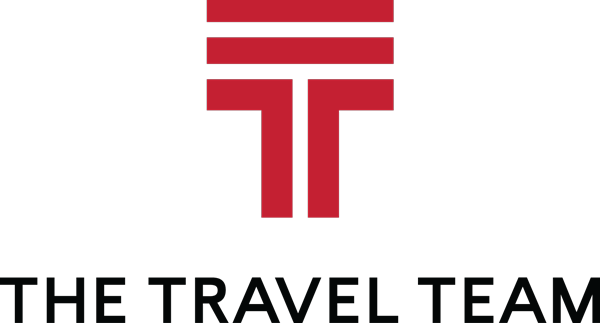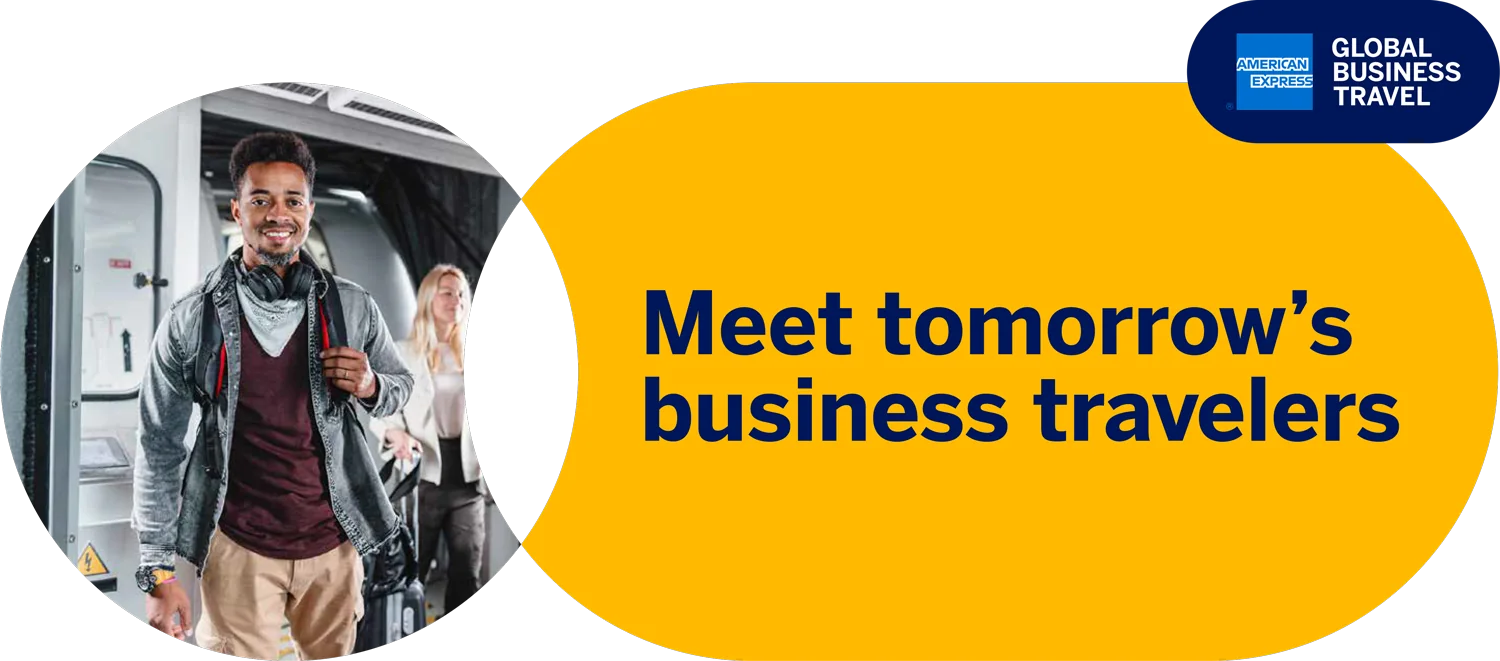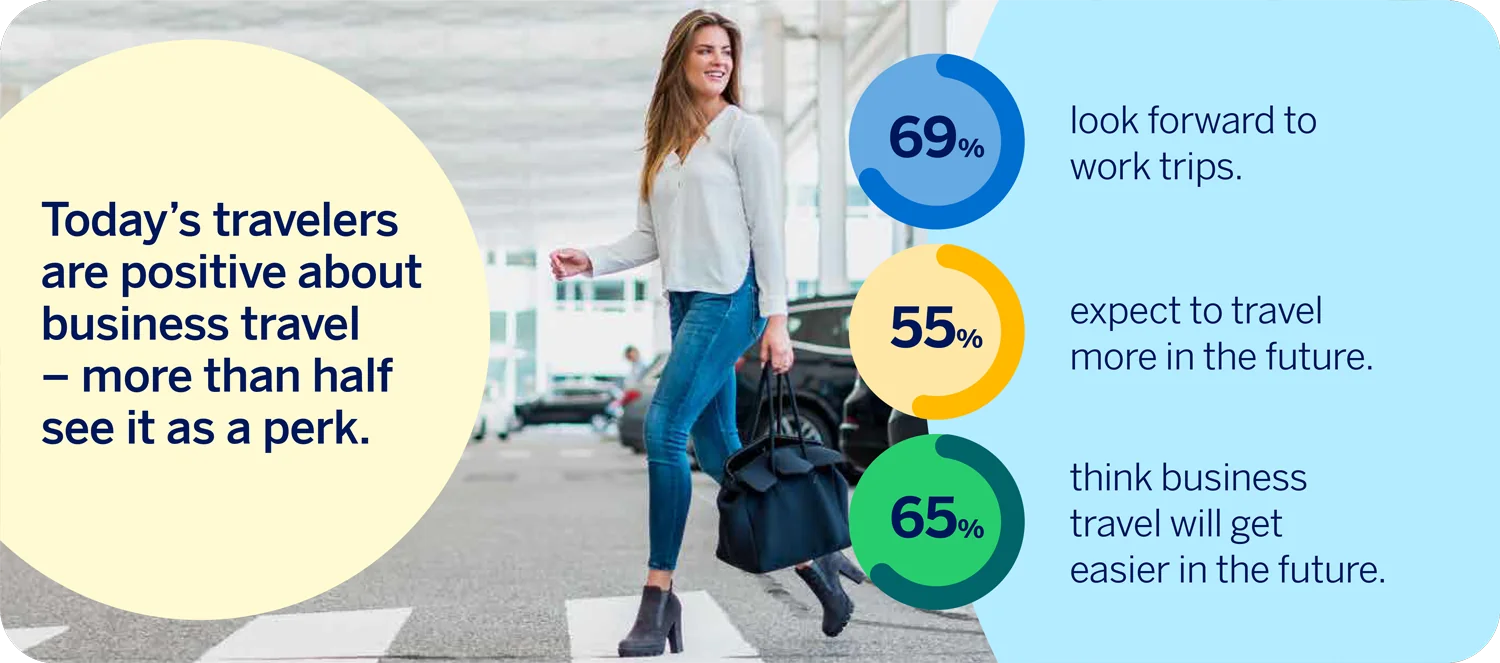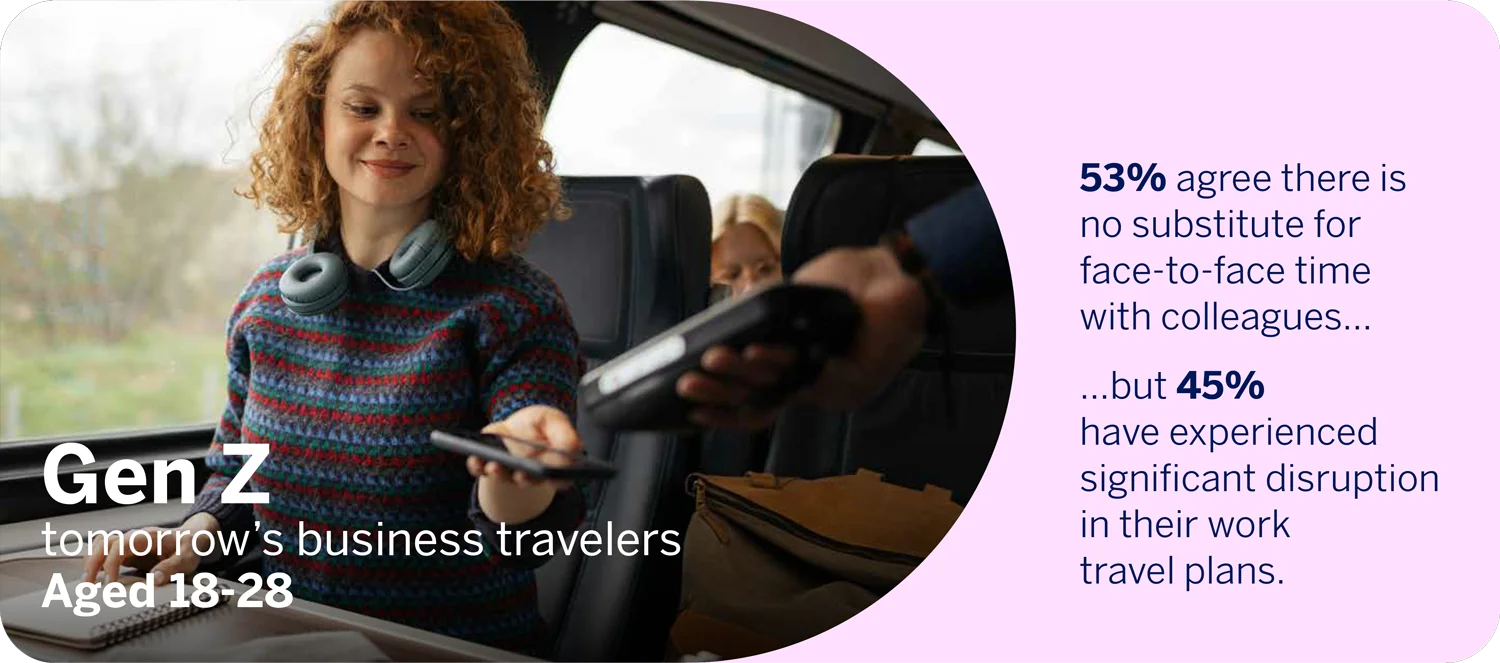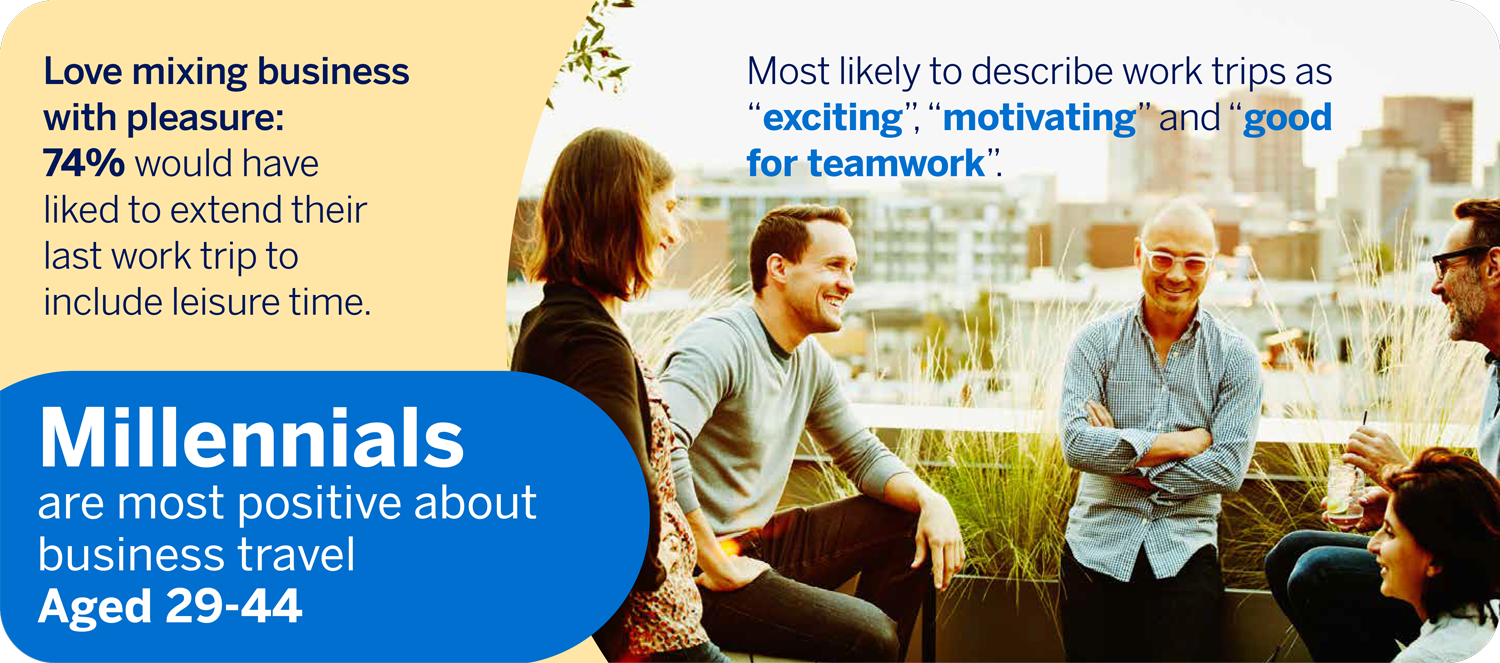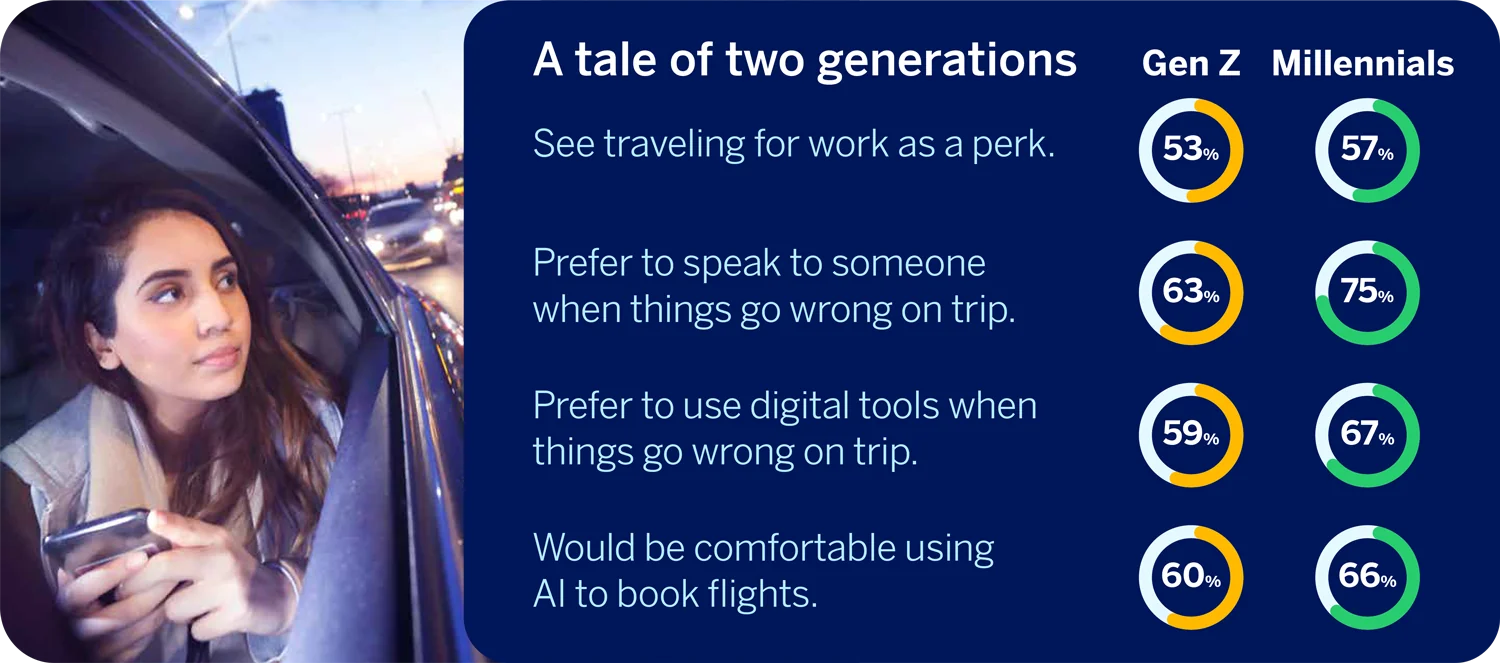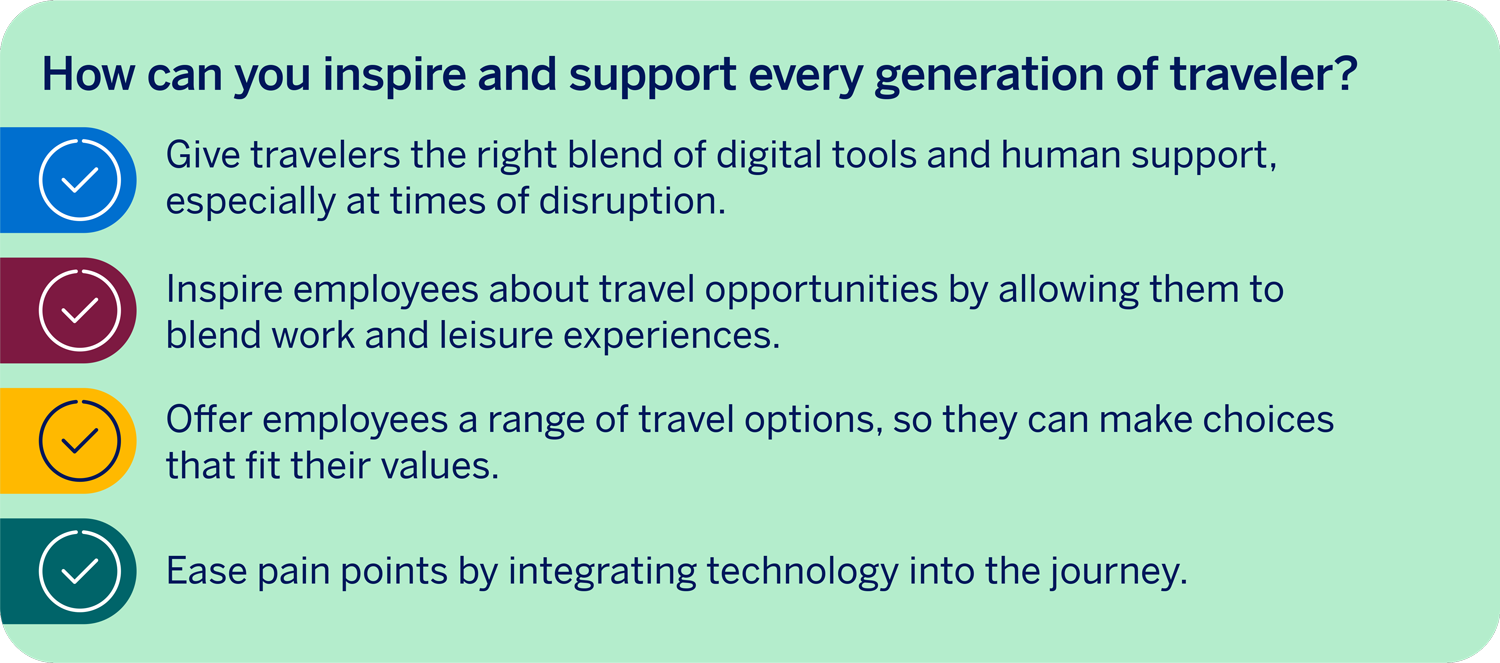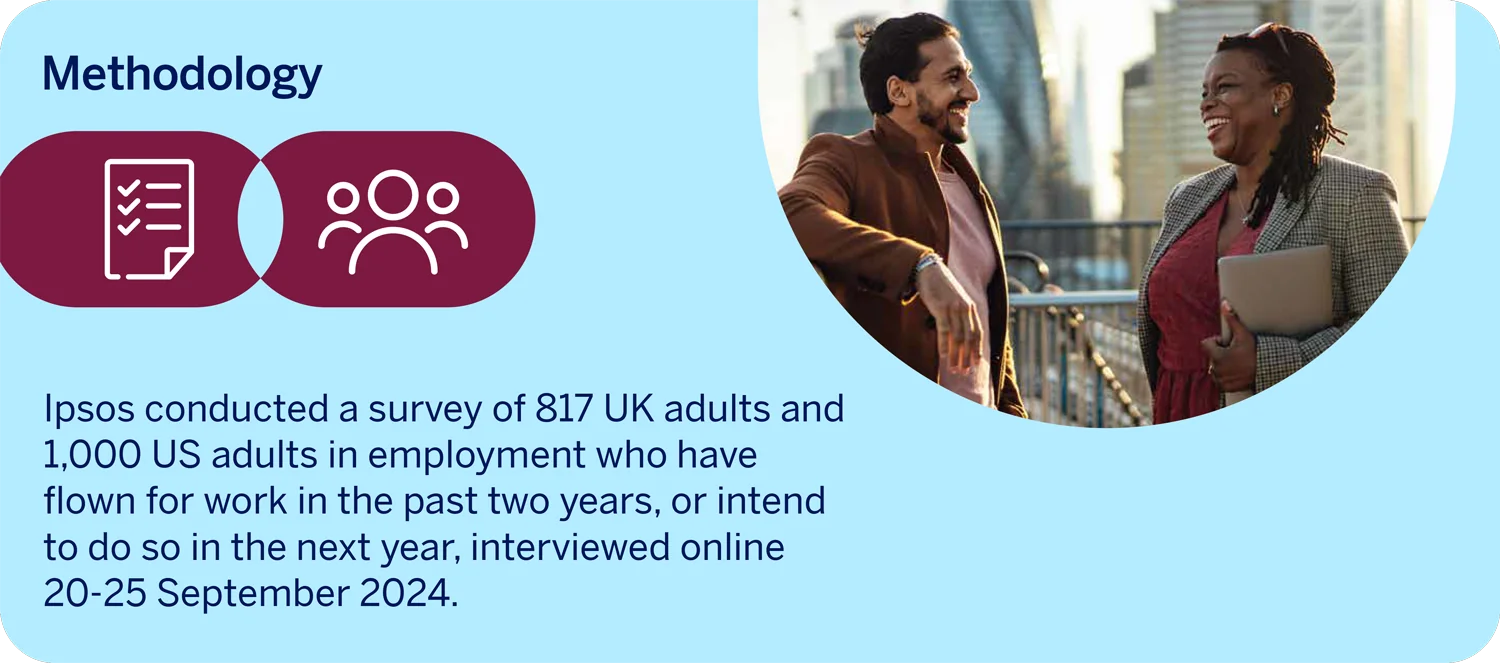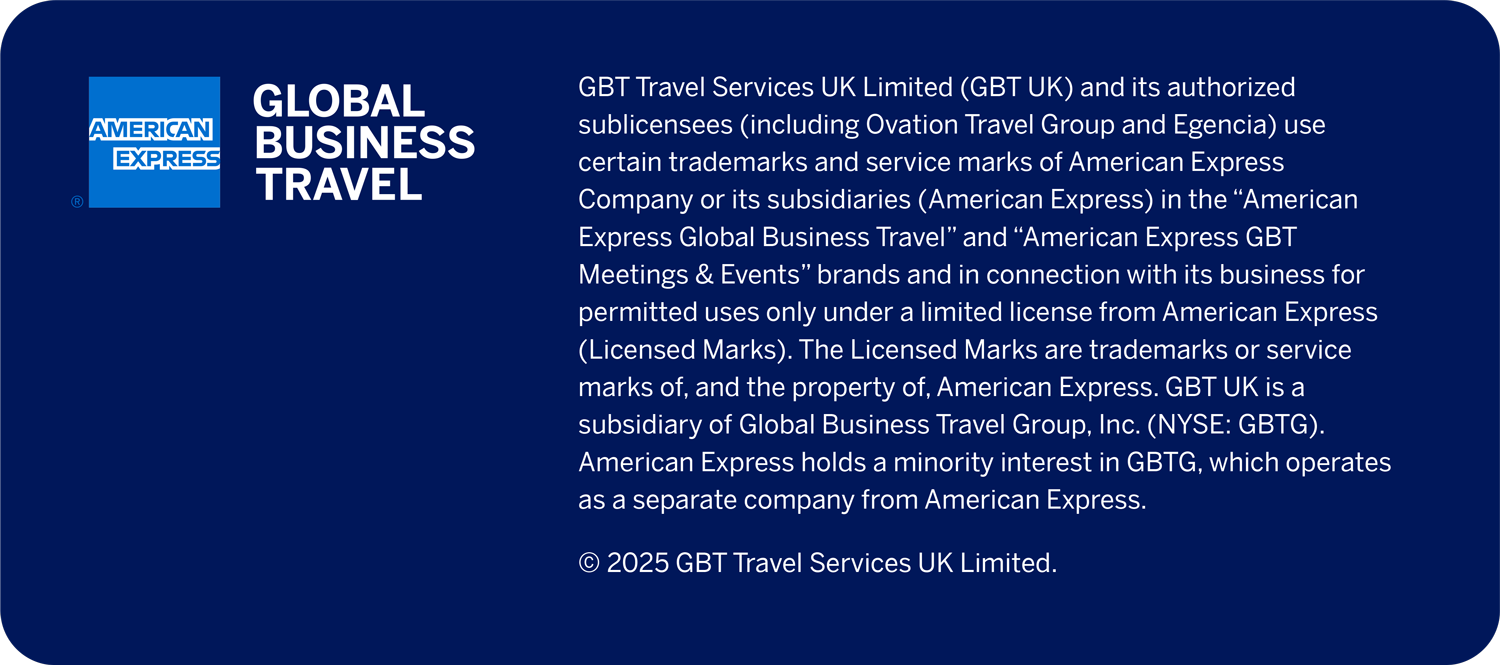The newest members of the workforce, Generation Z (born from 1997 to 2012 and currently in their teens and twenties) is starting their careers in a period of prolonged disruption in how organizations do business, including a transition to remote and hybrid work and more scrutiny around travel policy compliance as costs and safety concerns increase.
New data presented available through our GBTNetwork uncovers just how much these uncertainties have shaped Gen Z’s outlook on business travel. Members of Gen Z are more likely to experience stress and disruption than older generations while traveling for work. These same individuals are less comfortable than their millennial counterparts using either human or digital help when things go wrong. Gen Z employees are also less likely to understand their employer’s duty of care for travelers than millennial or Gen X employees.
Key Insights from the Study
53
%
of Gen Z
59
%
of millennials
63
%
of Gen X
agree there is no substitute for face-to-face time with colleagues
45
%
of Gen Z
36
%
of millennials
32
%
of Gen X
experienced a lot or a fair amount of disruption in their work travel plans
22
%
of remote workers
16
%
of hybrid workers
11
%
of location workers
say traveling for work is a chore
Just like the generations before them, Gen Z has specific preferences about how they work, how they travel, and how they travel for work—not surprising considering all they’ve experienced in the first few years of their careers. As Gen Z continues to enter the workforce, businesses must consider these individuals’ preferences around business travel, and how travel programs can support them. Communicating this support and educating new employees on the resources available to them while booking and traveling will also be essential to the success of corporate travel programs both now and in the future.
Remove Barriers to Booking and Support
Building positive associations with business travel begins at booking. A frictionless booking experience offers multiple ways to find the right travel options, including human support, self-service platforms, and specialized AI. The majority of travelers are comfortable booking low-risk elements of a trip, like hotels and meals, with AI. Today, travelers feel that more complex, higher-risk needs (such as visas and other government documents) are best left to human support.
Adopting AI tools too quickly can lead to errors and long-lasting distrust, although failing to take advantage of innovation in the industry to support technologically savvy Gen Z is also a risk. Aim for a common-sense approach that makes booking through approved channels just as easy as finding flights and accommodations via third-party platforms.
Prioritize Duty of Care
Gen Z is less aware of the ways employers can and should support their travelers. The ongoing disruption this generation faces as it enters the workforce may play a role in how Gen Z employees perceive an organization’s responsibility for keeping its travelers safe. This disconnect is an opportunity for businesses to both enhance duty of care and communicate the support travelers can access while on the road, including human and digital help. Over time, these deliberate changes can transform Gen Z into more confident business travelers.
Blend Business and Leisure Experiences
Bleisure travel is nothing new. However, Gen Z entered the workforce at the same time remote and hybrid roles increased, pushing the boundaries of flexible work and business travel even further. While statistics are helpful in understanding the general sentiments of Gen Z around blended travel (which includes trips where the primary focus is work with some leisure time and trips where the primary focus is leisure time with some work), there are several nuances to consider when shaping your organization’s policies around what is acceptable.
- Two-thirds of Gen Z business travelers would like more time to explore their destination. While this is a majority, it is less than the 76% of millennials who say the same. Consider ways in which Gen Z travelers may not be able to take advantage of blended travel in the same ways other generations can, including financial limitations, increased stress around traveling, and more.
- Gen Z, who is used to working remotely, is more willing to include work in leisure trips than Gen X. This introduces new challenges for travel programs, including determining when duty of care and other compliance considerations are at play and ensuring employees maintain work-life balance (which is more important to younger employees).
Learn More About Tomorrow’s Travelers
Additional Insights from GBTNetwork’s Research
